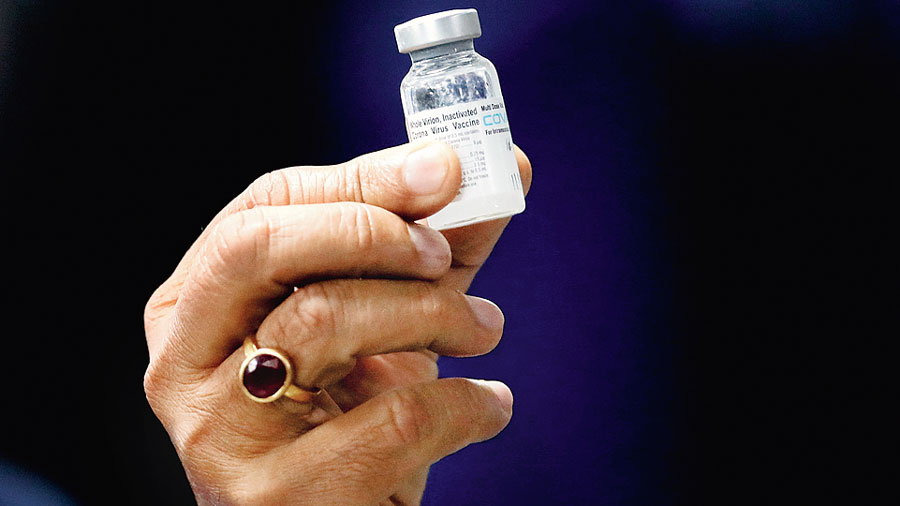The National Technical Advisory Group on Immunisation (NTAGI) will soon hold a meeting to devise a roadmap for introducing Zydus Cadila's Covid vaccine in the inoculation drive and prioritising beneficiaries focusing on those aged 12-18 years with comorbidities.
The indigenously developed world's first DNA-based needle-free COVID-19 vaccine ZyCoV-D received emergency use authorisation from the drug regulator on August 20 making it the first vaccine to be administered in the age group of 12-18 years in the country.
NTAGI Chairman Dr N K Arora said it is estimated that there are around 12 crore adolescents in the age group of 12-18 years in India and less than 1 per cent of them may have comorbidities.
The three-dose vaccine available for those in the age group of 12-18 years besides adults, will be rolled out in October.
"The NTAGI's meeting will be held soon to chalk out a roadmap for introducing the three-dose ZyCoV-D vaccine in the ongoing COVID-19 vaccination drive. The meeting will also focus on prioritisation of beneficiaries as this vaccine is approved for both adolescents and adults," he said.
"The aim is to develop a priority list with the focus being on adolescents aged 12-18 years with comorbidities," Dr Arora said.
The NTAGI will provide the protocol and framework for the introduction of this vaccine in the COVID-19 immunisation drive.
On the issue of reopening of schools, Dr Arora said it should be done in a phased manner.
"Besides parents and other members of the family, it has to be ensured that all the support staff whether it be school bus drivers, teachers or other staff in the schools are vaccinated against coronavirus to create a protective ring around children," he said, adding children mostly contract mild infections.
Covishield, Covaxin and Sputnik V vaccines are being given to only those above 18 years and unlike ZyCoV-D, which is three-dose, these are administered in two doses.
The Department of Biotechnology (DBT) has said that ZyCoV-D is the world's first DNA-based vaccine against coronavirus and when injected produces the spike protein of the SARS-CoV-2 virus and elicits an immune response, which plays a vital role in protection from the disease as well as viral clearance.
It said interim results from phase 3 clinical trials in over 28,000 volunteers showed primary efficacy of 66.6 per cent for symptomatic RT-PCR positive cases. This has been the largest vaccine trial so far in India for COVID-19, the DBT said.
The vaccine had already exhibited robust immunogenicity and tolerability and safety profile in the adaptive phase one and two clinical trials. Both phase one/two and phase three clinical trials have been monitored by an independent data safety monitoring board, it added.
(PTI)










